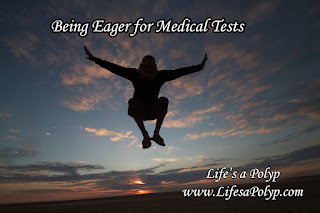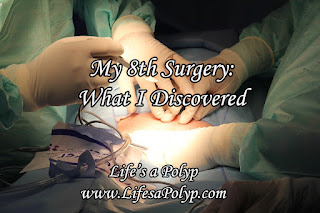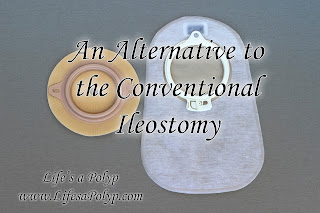This has been a story in the making for over a year now. I am now released from worker's compensation and feel able to share my story with Post Concussion Syndrome (PCS).
In 2015, I fell at work and hit my head due to my blood pressure bottoming out. I didn't have a concussion from that fall, and it wouldn't be until 2022 that I would come to understand how so many of my health changes stemmed from that single fall that caused me to develop Abdominal Migraine.
In early February 2023 I fell on the ice at work injuring my head and my right knee. I didn't even land on my knee but yet I twisted it in the process. At first, I didn't think anything about it really. I immediately hurt from my fall, as I would expect. I called my neurologist's office to let them know I had hit my head so that they were aware and that I was feeling alright except for the expected pain from a fall. However, within a few hours, things started to change. I started having pressure in my head, headache, my concentration and speech were off, I felt funny. There was such a remarkable difference in my speech alone that when I called my neurologist's office back, I was told that I definitely needed to go the ER for evaluation.
My mom took me to a small, local ER. In spite of being there for concussion symptoms, the ER doctor was only concerned if I was vomiting and if I had hurt my knee and neck. He ordered a knee x-ray and a neck CT scan - both were unremarkable. He said I scored a 15 on some scale (which was really good evidently), I wasn't vomiting, and I had hit the back of my head so he wasn't concerned about a severe concussion and therefore he wouldn't order any imaging of my head. I didn't realize until after I was released that I don't think he asked me if I was having any other symptoms other than pain and vomiting. The only reason that the ER doctor explained why he wasn't worried about a severe concussion and would even use the word "concussion" with me was because I kept asking every staff member that came into my room why I wasn't having any imaging tests of my head. Word got back to the doctor, and he decided then to say anything about a concussion to me. Even then, he would only say "you might have a mild concussion". Might my ass. And the only instructions I was given were by the nurse who warned me about increased symptoms if my heart rate increased over the next couple weeks and to take Tylenol or Ibuprofen. A day or two later, I realized that I hadn't advocated for myself at all like I normally would, and this wouldn't be the last time either when dealing with my concussion, unfortunately.
To say that I have been completely confused and scared, unlike myself in so many ways, is an understatement. A friend told me to not look at any screens and to follow up with my PCP. I told her about it and asked about any precautions/restrictions I needed to take. The only thing I was told was to limit screens.
The night of my fall, my entire body hurt - every single joint and major muscle group was flared. I hurt almost as badly as did following my gallbladder removal surgery when my nerve pain kept me bedbound for 4 months except for the time I went to work. Four days later and looking at screens still triggered or increased my headaches. Since my injury occurred while at work, I was followed by worker's comp and bound to their rules and recommendations. With my symptoms no better after the 4 days the ER doctor wrote for me to be off work, I was directed to 3-4 different nurse practitioners to manage my care at an urgent care contracted with my worker's comp. I wasn't assigned to one nurse practitioner, so I never knew who was going to be the one to manage my care that week when I would return for each follow up visit. The time I was allowed and restricted from screens changed every week. But by my 2nd visit back, there was concern about my knee that I twisted in my fall and was referred to physical therapy. There the physical therapist told me I likely had an injury to my outer meniscus and was allotted 6 sessions of physical therapy to strengthen it as it healed.
In the meantime, I was still experiencing headaches, memory loss, loud noises bothering me, excessive crying at sometimes nothing at all and other times if I was overwhelmed in the slightest, misreading signals so I thought everyone was mad at me with absolutely no evidence, numbness, difficulty concentrating and forming sentences when my headaches were really bad. I differentiate between how noises bother me - usually when a noise bothers someone it hurts their ears but for me, noise hurts my brain. One day, I had the worst headache I've ever had in my entire life. My entire head hurt immensely and every few seconds it felt as though I was being forcefully struck on the top of my head repeatedly for about an hour. It took Tylenol 45 minutes to start to lessen the pain. I struggled with my short-term memory for a long time, and it was very upsetting to me. I couldn't remember things like where I had found a coffee I liked. One week, I bought a to-go drink from somewhere that I sipped on for several days. By the end of the week, I looked at this generic cup and realized I had no recollection of where I had obtained this cup from. While most of the things I couldn't remember weren't significant it was the mere fact that I couldn't remember that was extremely upsetting and would lead to crying spells.
There were so many days that I was completely convinced that Mike was ending our life partnership with absolutely no reason to think this. The most frustrating thing? I wasn't even feeling depressed and yet I was more emotional and crying more frequently than I think I usually do when I am depressed feeling. It literally was as though I suddenly lost all of my coping skills. I could only handle feeling overwhelmed, overstimulated, stressed for about 5 minutes max before I would break down into tears - and sometimes I couldn't stop crying for 2 hours or more. My neurologist told me that I needed to address this in my mental health counseling or as my brain heals from the injury "it will get stuck like that". Great, like that didn't add even more stress to me during this. My counseling had to be placed on hold though as my cognitive behavioral therapy was virtual so there were times I couldn't be on the computer, and it was unsafe to undergo EMDR therapy due to risk of seizure with a concussion.
After a few weeks, with symptoms not improving and probably only because I had a crying spell with one of the nurse practitioners, a brain MRI was ordered but didn't show any explanation for my continued symptoms and then after a couple more weeks, I was finally referred to a neurologist. The majority of this process I felt completely confused, no idea what to expect, no idea if what I was experiencing was normal, and feeling terrified this would be how I'd be for the rest of my life. So, to finally be allowed to see a neurologist was a large relief...except though of course, my anxiety of providers I'm not familiar with and my fear of being dismissed and overlooked, misunderstood as a rare disease and medically complex patient.
The earliest availability with the neurologist I was referred to was mid-July. My case manager and adjuster both agreed this was too long of a wait for me to be seen by a neurologist and asked if my neurologist would accept worker's comp and see me instead. My neurologist, a saint of a man, agreed as a favor to me because he knows me well and is aware of my mistrust and fear of new providers.
With all the approvals in place, I was able to see my neurologist who advised my brain looked good and cautioned me to only use analgesics 2-3 times a week, not daily, as it could worsen my headaches. Instead, he wanted to focus on preventing my headaches and prescribed Topamax for me to try. It would take up to 6 weeks to become fully effective and has some bothersome side effects and so it's recommended to take it at night so that one sleeps through the side effects. This, of course, had to be approved by my worker's comp team before I could obtain the medication though. My neurologist also recommended that I discuss with my adjuster the logistics for me to have a reduced work schedule to allow time for my brain to heal. He told me that my brain hadn't been getting the time it needed to heal and jumping straight back into work and usual activities hinders the healing process following a concussion. Additionally, he advised me that my difficulty to remember words, using word salad, saying phrases backwards and even repeatedly saying the same thing over and over were all a signal that my brain was needing a break, it was working too hard.
I indeed did experience side effects from the Topamax - namely numbness. Both of my arms became numb, and it was bothersome, but I was willing to withstand it if it would help my brain. However, by the 3rd night on the Topamax my legs became numb and were hurting. I could barely sleep that night from neuropathy like symptoms in my legs. I thought perhaps taking a hot shower would help my legs feel better. That was the wrong move though as I nearly fell more than once in the shower due to the severity of numbness in my legs and I couldn't feel how hot the water was, so when I got out of the shower my body looked like it had a severe sun burn. I called my neurologist that morning who immediately switched me to Candesartan. Migraine prevention is one of the off-label uses of Candesartan as it is actually a high blood pressure medication. Again, he instructed for me to take Candesartan at bedtime in case it made me drowsy, and it would take a while for it to build in my system. He also advised he wouldn't want to test if I no longer needed the Candesartan for at least 6 months and possibly not until a year. I also required worker's comp approval to try this medication and then again, each month to obtain a refill.
Let me tell you, I am in love with Candesartan. It is an old medication, and I don't have any negative side effects. It doesn't make me drowsy but if I take it at the right time, it allows me to actually sleep well throughout the night. I have never slept as well, especially continuously, as I do with the Candesartan. It doesn't leave me feeling groggy the next day either like all other sleep aids/medications do. And of course, the very best thing about it is it does help reduce my symptoms to a tolerable level. I have not recovered to how I was prior to my fall and am not anticipated to return to that baseline either. I did require my dose to be increased as one missed dose caused a several day flare of my symptoms and one missed dose shouldn't lead to such a long recovery.
Loud noises, overstimulation, and the decreased frustration/stress tolerance levels have been extremely difficult to navigate as they feed off one another and would then trigger a Migraine headache. Loud noises start to overstimulate my brain, as I become more stimulated the less I can tolerate and the more emotional I become the more likely I am to cry and every one of these things trigger headaches for me. There are also times that the slightest noise is too much for me and I need complete silence. I have been unable to find headphones that cut out 100% of noise but I do have noise cancelling ear buds and headphones that Mike got me to help reduce this cycle. There are times that I require using both my earbuds and headphones simultaneously as the noise is too bothersome with just one. Certain sounds and frequencies are at times more bothersome than others and at times they're not, there is no 100% consistent predictability to what will trigger my Migraine headaches. To make it worse, when I can't escape noise, it has triggered a form of anxiety in my brain that has at its worst required me to use all my strength to not smash my head into something to try to make my brain stop hurting. There have been plenty of days that I come home from work, and I message Mike "I'm lying down, leave me alone until I get out of bed" and he knows that means my brain is requiring complete silence and darkness to recover to a functioning level again.
In the midst of all these events transpiring, I was crying at nearly every turn due to my anxiety and fears coupled with my loss of coping skills since my fall. Once I was able to resume counseling, my counselors started working on identifying the root cause of my emotional distress and loss of coping skills. And we came to the conclusion that while a symptom of PCS is a lower tolerance level for stress and frustration and increased emotionality, trauma was also contributing to my increased emotional state. It was as though I had been transported back in time to when I was 9 starting with my first surgery. As a 9-year-old, I didn't have any coping skills, everything was new, confusing, and scary. Which was exactly how I'd been feeling. I didn't have any providers I trusted then or in the beginning of my concussion. It'd been a week-by-week trial and error for me and Mike trying to fine tune the best things for me and him to do to help me. And it's during this that I realized I need Mike and I truly don't know how I would be navigating all of this emotionally without him. Perhaps that's why I was convinced he was leaving me even. I was letting him closer to me than I ever had before, something that is scary to me, something against the vow I made to myself following my divorce. It was all too much at once and I felt vulnerable on all fronts.
Mike's been really great though throughout. He makes every effort to answer my calls or call me back as soon as he can because he knows that I'm calling because I'm spiraling, and I need him to help walk me through it into calmness. He pays attention to all the random, useless information I tell him so that when I forget something, he can help remind me and prevent a spiraling episode. When we're in person and I start to spiral, he physically makes me stop and just breathe with him. And it was working! Slowly, over time I've required less time to calm even by myself and lengthened my tolerance level for stress, frustration, and overstimulation. Over a year later and all my symptoms are still not at the level I had pre-PCS but it's much closer at least and much more tolerable. Sometimes I'm able to go almost two weeks without crying from my decreased stress or frustration tolerance level and increased emotionality. I no longer feel insecure about my relationships with others, and I can tolerate loud noises for longer periods before requiring noise cancelling headphones.
Once my symptom improvement maintained but I was no longer seeing improvements, my neurologist and I agreed that I had achieved maximum medical improvement and not anticipated to ever return to my baseline. My worker's comp then scheduled an Independent Medical Exam by another neurologist at my 1-year mark of my injury to determine if I still required the Candesartan.
I finally received the notice that my worker's comp case was being closed as the independent neurologist found that I have achieved maximum medical improvement and my medication and any other future claims related to my injury would no longer be covered under worker's comp. Simply put, my PCS won't get better and even though I have only improved as well as I have because I am taking Candesartan, worker's comp has cut me off and doesn't find that Candesartan is needed to maintain that improvement. However, I expected their ruling and while it does suck to have to pay for my medication for the rest of my life it also means that I don't have to jump through any of the hoops that's required by worker's comp to obtain the continued care I need for my PCS.
I hope I never have another fall again. I am particularly careful now when walking as my brain can't handle continued injuries. This is my second fall as an adult with a head injury that caused a new life-long condition.
If you or someone you know receives a head injury, I implore you to take it seriously. Concussions are no joke. Seek out the care of a neurologist for monitoring and possible treatment options.

















